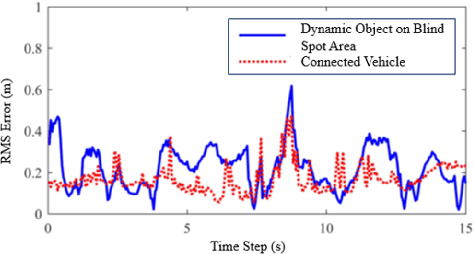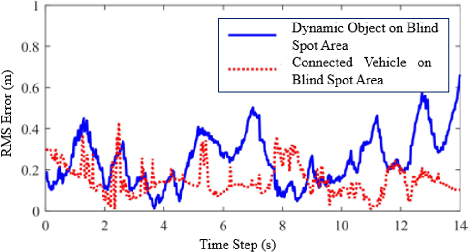Map Container: A Map-based Framework for Cooperative Perception
Paper and Code
Aug 28, 2022



The idea of cooperative perception is to benefit from shared perception data between multiple vehicles and overcome the limitations of on-board sensors on single vehicle. However, the fusion of multi-vehicle information is still challenging due to inaccurate localization, limited communication bandwidth and ambiguous fusion. Past practices simplify the problem by placing a precise GNSS localization system, manually specify the number of connected vehicles and determine the fusion strategy. This paper proposes a map-based cooperative perception framework, named map container, to improve the accuracy and robustness of cooperative perception, which ultimately overcomes this problem. The concept 'Map Container' denotes that the map serves as the platform to transform all information into the map coordinate space automatically and incorporate different sources of information in a distributed fusion architecture. In the proposed map container, the GNSS signal and the matching relationship between sensor feature and map feature are considered to optimize the estimation of environment states. Evaluation on simulation dataset and real-vehicle platform result validates the effectiveness of the proposed method.
 Add to Chrome
Add to Chrome Add to Firefox
Add to Firefox Add to Edge
Add to Edge